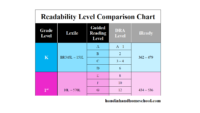Executive Functioning (EF) is a series of thinking tasks that help a person stay organized, such as:
- Planning
- Evaluating Choices and Ideas
- Self-Correcting
- Strategizing
- Paying Attention
- Remembering Details
- Managing Time
- Managing Space
- Asking for Help
- Delaying Gratification
- Working Memory
Children with Executive Functioning deficits look like many other children, but their behavior can give you a clue that something is up. Messy rooms. Losing things repeatedly. Always being late. These are just a few ways that lack of EF skills creates disorder in a child’s life.
Executive Functioning skills are important to learning and education. EF helps people tap into past experiences and knowledge so they can best plan for the future. For example, a student who failed a history test would find it useful to think back to how they studied in the past so they can change study habits and do better on the next test.
Lack of EF skills, not laziness, keep some students from being able to engage in this type of self-reflection and to critically think about a situation they are not doomed to continue to use poor study habits.
Diagnosing Executive Dysfunction
No one single test can diagnose Executive Dysfunction in a child. Trained professionals can administer a series of informal and formal tests to assess areas such as cognitive flexibility, problem solving, fluency, attention, and sequencing.
Unfortunately, Executive Dysfunction thrives when there’s a lack of structure or a child is given the freedom of personal responsibility. Testing, by its nature, uses some type of structure in order to figure out what issues a student is dealing with. That means testing for EF deficits might miss some kids.
Good News
Methods for treating Executive Functioning deficits can’t hurt a child who may not qualify for a formal diagnosis. Many children benefit from learning specific organizational and critical thinking skills.
Last modified on April 14, 2020




